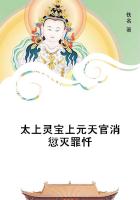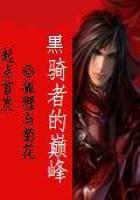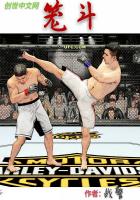The previous winter, a fellow student, Pokoreff by name, on leaving for Charkoff, had happened to communicate to him in conversation the address of Alena Ivanovna, in case he should ever require to pawn anything. For a long time he did not use it, as he was giving lessons, and managed somehow to get along, but six weeks before this time he had recollected the address. He had two things fit to pawn--an old silver watch, formerly his father's; and a small gold ring with three red stones, a souvenir from his sister on leaving home. He decided on getting rid of the latter, and went to the old woman's. At the first glance, and knowing nothing whatever of her personally, she inspired him with an unaccountable loathing. He took her two notes, and on leaving went into a poor traktir, or restaurant, and ordered some tea. He sat down musing, and strange thoughts flitted across his mind and became hatched in his brain.
Close by, at another table, were seated a student, whom he did not know, and a young officer. They had been playing billiards, and were now drinking tea. Suddenly Raskolnikoff heard the student give the officer the address of Alena Ivanovna, the widow of a professor, as one who lent money on pledges. This alone struck Raskolnikoff as very peculiar. They were talking of the same person he had just been to see. No doubt it was pure chance, but, at the moment he was struggling against an impression he could not overcome, this stranger's words came and gave extra force to it.
The student went on talking, and began to give his companion some account of Alena Ivanovna.
"She is well known," he said, "and always good for money. She is as rich as a Jew, and can advance five thousand rubles at a moment's notice; yet she will take in pledge objects worth as little as a ruble. She is quite a providence to many of our fellows--but such an old hag! I tell you what I would do. I would kill that damnable old hag, and take all she is possessed of, without any qualm of conscience," exclaimed the student excitedly.
The officer laughed, but Raskolnikoff shuddered. The words just uttered so strongly echoed his own thoughts. "Let me put a serious question to you," resumed the student, more and more excited. "Ihave hitherto been joking, but now listen to this. On the one side here is a silly, flint-hearted, evil-minded, sulky old woman, necessary to no one--on the contrary, pernicious to all--and who does not know herself why she lives.""Well?" said the officer.
"Hear me further. On the other hand, young fresh strength droops and is lost for want of sustenance; this is the case with thousands everywhere! A hundred, a thousand good deeds and enterprises could be carried out and upheld with the money this old woman has bequeathed to a monastery. A dozen families might be saved from hunger, want, ruin, crime, and misery, and all with her money!
Kill her, I say, take it from her, and dedicate it to the service of humanity and the general good! What is your opinion? Shall not one little crime be effaced and atoned for by a thousand good deeds? For one useless life a thousand lives saved from decay and death. One death, and a hundred beings restored to existence!
There's a calculation for you. What in proportion is the life of this miserable old woman? No more than the life of a flea, a beetle, nay, not even that, for she is pernicious. She preys on other lives. She lately bit Elizabeth's finger, in a fit of passion, and nearly bit it off!""Certainly she does not deserve to live," observed the officer, "but nature--""Ah, my friend, nature has to be governed and guided, or we should be drowned in prejudices. Without it there would never be one great man. They say 'duty is conscience.' Now I have nothing to say against duty and conscience, but let us see, how do we understand them? Let me put another question to you. Listen.""Stop a minute, I will give you one."
"Well?"
"After all you have said and declaimed, tell me--are you going to kill the old woman YOURSELF, or not?""Of course not. I only pointed out the inequality of things. As for the deed--""Well, if you won't, it's my opinion that it would not be just to do so! Come, let's have another game!"Raskolnikoff was in the greatest agitation. Still, there was nothing extraordinary in this conversation; it was not the first time he had heard, only in other forms and on other topics, such ideas from the lips of the young and hotheaded. But why should he, of all men, happen to overhear such a conversation and such ideas, when the very same thoughts were being engendered in himself?--and why precisely THEN, immediately on his becoming possessed of them and on leaving the old woman? Strange, indeed, did this coincidence appear to him. This idle conversation was destined to have a fearful influence on his destiny, extending to the most trifling incident and causing him to feel sure he was the instrument of a fixed purpose.
On his return from the market, he flung himself upon his couch and sat motionless for a whole hour. It became dark, he had no light, but sat on. He could never afterwards recollect his thoughts at the time. At last he felt cold, and a shiver ran through him. He recognized with delight that he was sitting on his couch and could lie down, and soon he fell into a deep, heavy sleep. He slept much longer than usual, and his slumbers were undisturbed by dreams.
Nastasia, who came to his room the next morning at ten o'clock, had great difficulty in awakening him. The servant brought him some bread and, the same as the day before, what was left of her tea.
"Not up yet!" exclaimed she indignantly. "How can you sleep so long?"Raskolnikoff raised himself with an effort; his head ached; he got upon his feet, took a few steps, and then dropped down again upon the couch.
"What, again!" cried Nastasia, "but you must be ill then?" He did not answer. "Would you like some tea?""By and by," he muttered painfully, after which he closed his eyes and turned his face to the wall. Nastasia, standing over him, remained watching him for a while.















